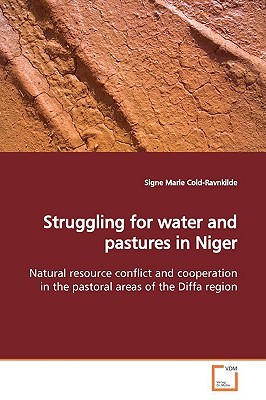
- We will send in 10–14 business days.
- Author: Signe Marie Cold-Ravnkilde
- Publisher: VDM Verlag
- ISBN-10: 3639040589
- ISBN-13: 9783639040586
- Format: 15.2 x 22.9 x 0.8 cm, minkšti viršeliai
- Language: English
- SAVE -10% with code: EXTRA
Struggling for water and pastures in Niger (e-book) (used book) | bookbook.eu
Reviews
Description
In Niger the question of rights to pastoral resources illustrates how struggles in Western mindset have been transported to the developing world. On the one hand there has been an attempt to standardise legal frameworks and land tenure practices with uniform rules. On the other hand, since the 1990s customary practices are increasingly recognised in legal frameworks. "Struggling for water and pastures in Niger" investigates the philosophical assumptions behind the rules governing rights to water and pastures. It shows how these assumptions inform natural resource struggles on the ground. The book reveals that points of contest between universalism and cultural relativism in regards to property, public authority and justice are reflected in both national legislation and international development practices. On the basis of a sensitive study of struggles over water and pastures in the pastoral areas the author accounts for the outcome of conflict and cooperation and explains why herders, like people in other cultures, conceive of their rights in a contradictory manner: as requiring adoption to cultural specific conditions and yet applies universally to all.
EXTRA 10 % discount with code: EXTRA
The promotion ends in 23d.14:14:31
The discount code is valid when purchasing from 10 €. Discounts do not stack.
- Author: Signe Marie Cold-Ravnkilde
- Publisher: VDM Verlag
- ISBN-10: 3639040589
- ISBN-13: 9783639040586
- Format: 15.2 x 22.9 x 0.8 cm, minkšti viršeliai
- Language: English English
In Niger the question of rights to pastoral resources illustrates how struggles in Western mindset have been transported to the developing world. On the one hand there has been an attempt to standardise legal frameworks and land tenure practices with uniform rules. On the other hand, since the 1990s customary practices are increasingly recognised in legal frameworks. "Struggling for water and pastures in Niger" investigates the philosophical assumptions behind the rules governing rights to water and pastures. It shows how these assumptions inform natural resource struggles on the ground. The book reveals that points of contest between universalism and cultural relativism in regards to property, public authority and justice are reflected in both national legislation and international development practices. On the basis of a sensitive study of struggles over water and pastures in the pastoral areas the author accounts for the outcome of conflict and cooperation and explains why herders, like people in other cultures, conceive of their rights in a contradictory manner: as requiring adoption to cultural specific conditions and yet applies universally to all.


Reviews